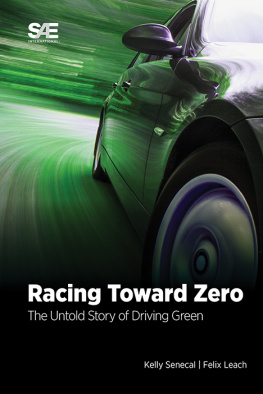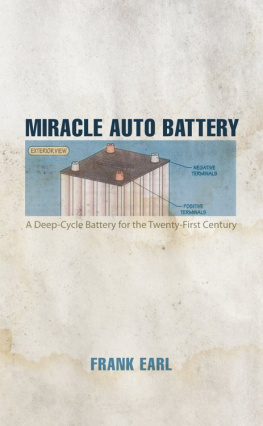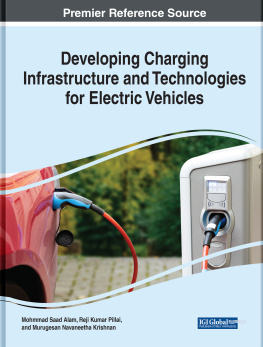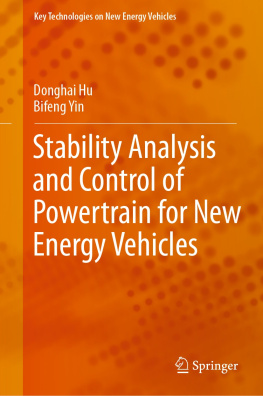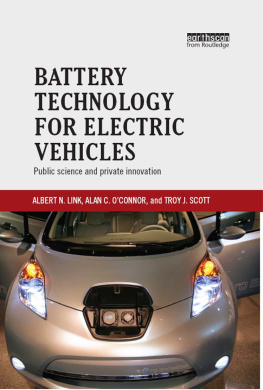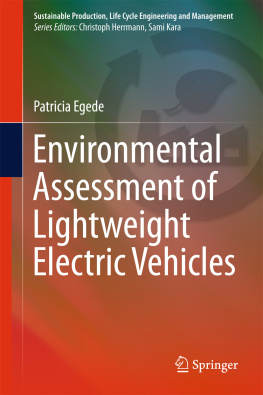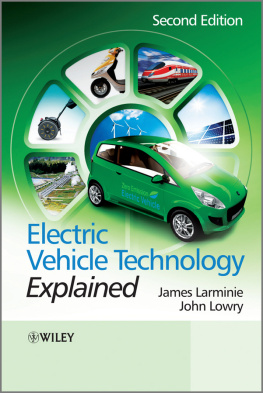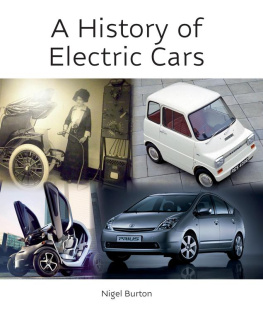 | 400 Commonwealth Drive Warrendale, PA 15096-0001 USA E-mail: Phone: 877-606-7323 (inside USA and Canada) 724-776-4970 (outside USA) FAX: 724-776-0790 |
Copyright 2021 SAE International. All rights reserved.
No part of this publication may be reproduced, stored in a retrieval system, or transmitted, in any form or by any means, electronic, mechanical, photocopying, recording, or otherwise, without the prior written permission of SAE International. For permission and licensing requests, contact SAE Permissions, 400 Commonwealth Drive, Warrendale, PA 15096-0001 USA; e-mail: ; phone: 724-772-4028.
Library of Congress Catalog Number 2021938087
http://dx.doi.org/10.4271/9781468601473
Information contained in this work has been obtained by SAE International from sources believed to be reliable. However, neither SAE International nor its authors guarantee the accuracy or completeness of any information published herein and neither SAE International nor its authors shall be responsible for any errors, omissions, or damages arising out of use of this information. This work is published with the understanding that SAE International and its authors are supplying information but are not attempting to render engineering or other professional services. If such services are required, the assistance of an appropriate professional should be sought.
ISBN-Print978-1-4686-0146-6
ISBN-PDF978-1-4686-0147-3
ISBN-ePub978-1-4686-0200-5
To purchase bulk quantities, please contact: SAE Customer Service
E-mail:
Phone: 877-606-7323 (inside USA and Canada)
724-776-4970 (outside USA)
Fax:724-776-0790
Visit the SAE International Bookstore at books.sae.org
Chief Growth Officer
Frank Menchaca
Publisher
Sherry Dickinson Nigam
Development Editor
Development Editor Publishers Solutions, LCC Albany, NY
Director of Content Management
Kelli Zilko
Production and Manufacturing Associate
Erin Mendicino
Foreword
Moving toward a much more sustainable transportation system is a really big challenge. There arent easy-to-implement, environmentally benign, large-scale options readily available given where we are today. We need help wherever we can find it, and this book is an important resource. It is titled (in part): the untold story of driving green . Yes, we dont yet have a broad, robust, fact-based review of our real-world transportation options and their enabling technology: Why not? Advocates have claimed much of the discussion playing field, and more thoughtful rationalists have been left behind. So, the reality-based hard and soft systems discussion that is this book is both timely and very welcome. The authors write well, keep their narrative flowing, and add a modicum of lightly sardonic humor to make it lively.
The books 13 chapters move steadily, in the appropriate sequence, through the topics we need to understand better to make more responsible choices. First comes a review of the basic sustainability issues that we will eventually have to resolve. A comprehensive summary of the promising and potentially available technology then follows: the propulsion systems and vehicle options followed by a broad overview of the low-carbon fuel and energy sources these vehicles (the focus is on cars, SUVs, and light trucks) will need as they are actually used. Next comes an in-depth review of the past and future fuel economy and emissions regulatory situation by major world region and country by country, which underlines the global scope of our challenge. Costs and their impacts are also factored in.
With the current state of dominance of vehicles with internal combustion engines using gasoline as fuel, the future potential and benefits of electrified vehicles are a very important topic that is thoroughly discussed. And its not just the battery-driven electric vehicle thats the focus; its all the other electrified vehicle options as well. Also reviewed are the anticipated broader manufacturing resource impacts, the infrastructure requirements, and the electricity generation needs and environmental impacts. This ICE/EV topic is handled in a realistic, even-handed way. What we know is described, and what we dont know is also spelled out, illustrating how effectively this book addresses such complex issues.
The authors then explore the broader transportation system topics that must be included in any thorough consideration. The vehicle users needs and wants are crucial and, of course, diverse. So are the economic and operational impacts on the individual user and more broadly at the transportation system level. The consumers perspectives are obviously important and are kept in mind throughout. How convenient will the more promising of the greener technology options be for vehicle users, and will these options become a compelling choice for the individual consumer and at a more aggregate level?
Transportation is at a crisis point and needs robust policies and decisions that will provide attractive services for all of us and produce substantial reductions in greenhouse gas emissions. Thats a big agenda, and the authors really do give readers the detailed information they will need to move their own thinking and assessments in this arena forward. The authors explain their own views and perspectives clearly and openly. The book will appeal to those who already have knowledge in the relevant areas and also to those who want to learn the needed knowledge to better understand these challenges. Its an informative, insightful, and fun read; and remember, we dont yet have definitive answers.
It is an honest book that lays out several promising future options. Some of these already look robust; some, as yet, less so. Thus, there is an urgent need for more exploration of such solutions in a real-life setting before the best path forward becomes clear. The book ends with We Have Some Suggestions: these embody a justified yet cautious optimism as to what we need to do next.
John B. Heywood
Sun Jae Professor of Engineering, Emeritus, MIT, Cambridge, MA, USA
Acknowledgments
First and foremost, we would like to acknowledge Elizabeth Berge Favreau for her immense contributions to this workour book could not have happened without her. From writing parts herself, to researching various topics, to editing the entire manuscript, to keeping our number of sign posts in check, Liz was, in many ways, the manager of this project. Her willingness to sacrifice countless nights and weekends to help us get our message out is extremely appreciated.
We would also like to thank Sherry Nigam, Linda DeMasi, Bruce Sherwin, and Erin Mendicino. Their help in guiding us through the book writing process and their words of encouragement along the way meant a lot to us.

